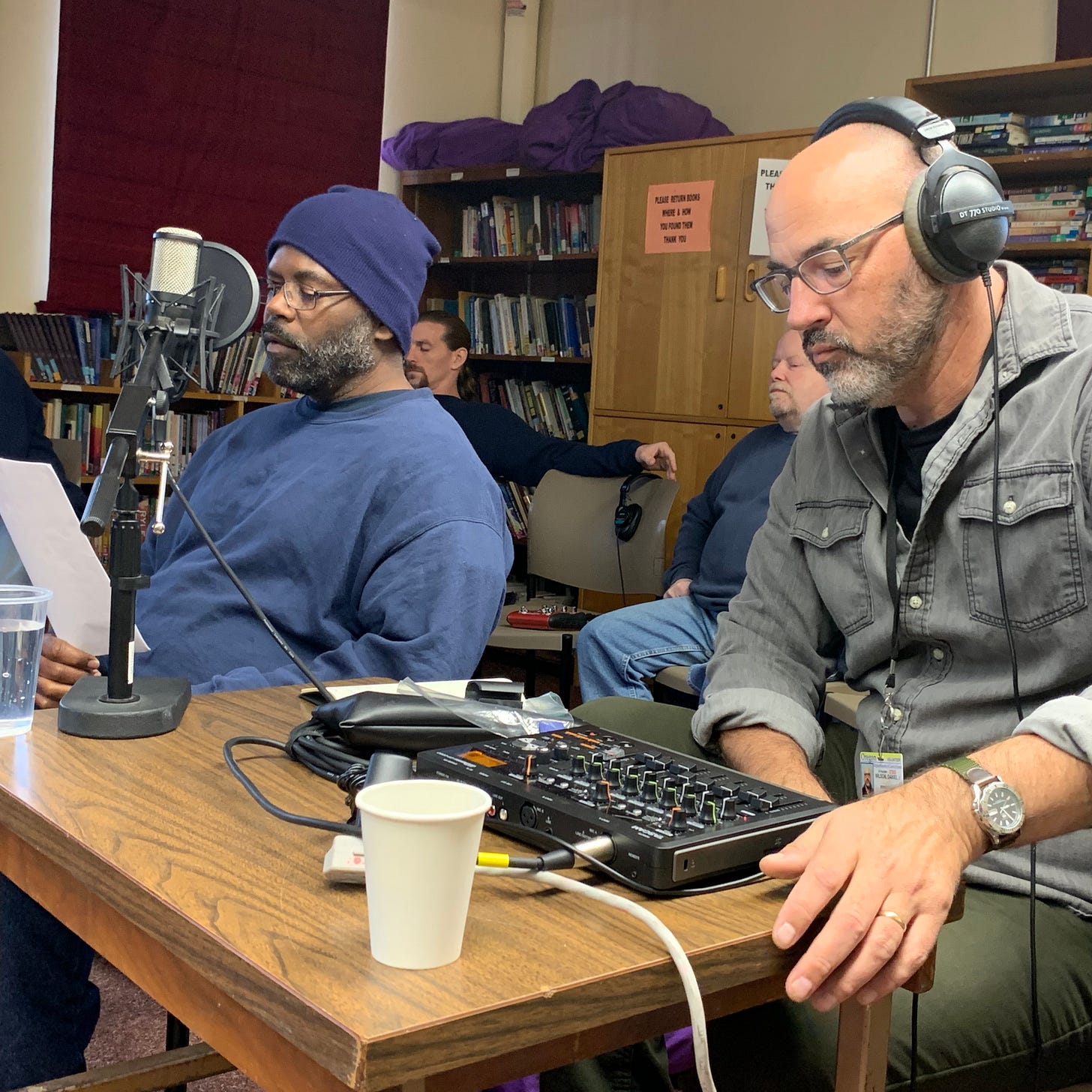2023 SPOTLIGHT: CHILD OF THE DIASPORA
TRACY SCHLAPP & DANIEL WILSON
The pressure built with the loss of each family member until Mama’s passing cracked my soul. I felt lost, but I knew I could not give up. In my family, my generation was now the oldest…
Our writers and editors do not have access to the PonyXpress online. Publishing their work is an important means to have a public voice, and equally important to share their creative lives with friends and family. Thus far, they have only seen printouts of their submissions. An award from the Spirit Mountain Community Fund of Grand Ronde will allow us to make a small edition of The Ancestors, Issue No. 1. We will be giving copies to every person who has contributed to this year’s PonyXpress.
Oregon State Penitentiary editors have been working with us to select the pieces we feel best explore the theme of Ancestry — pulling on those threads of imagination required to breath life into old photographs and names handwritten on old documents. In surveying the genealogical layers, we found particles of our being: the traumas, the joys, and the deep bone knowledge of our humanity. This recording of AbdurRashid Al’wadud’s piece, Child of the Diaspora caught our attention, reminding us that the very cells of our being contain many narratives — story lines that tangle, knot, fray. The impulse to plait a story of self from the fibers of contradictions and widely different traditions calls to mind Walt Whitman’s Song of Myself, section 51:
The past and present wilt—I have fill'd them, emptied them.
And proceed to fill my next fold of the future.Listener up there! what have you to confide to me?
Look in my face while I snuff the sidle of evening,
(Talk honestly, no one else hears you, and I stay only a minute longer.)Do I contradict myself?
Very well then I contradict myself,
(I am large, I contain multitudes.)
AbdurRashid’s grief compiles as he loses many family members in a short time, the history and stories are slipping from his cuffed hands. The plight of the incarcerated compounds loss, and grief. Familial rituals and rites are stripped away. Listen to AbdurRashid read about his experience of trying to hold his family history through research, discovery, and the restorative act of prayer.
Survival for the next generation depends on people who are locked away. Our writers who are incarcerated need to write a broader history, to fill in the blanks that otherwise leave gaping holes in the family story. Each generation deserves the largest portrait possible, even if it is filled with contradictions. I am large. I contain multitudes. | TDS



I love hearing authors read their work. Thank you.